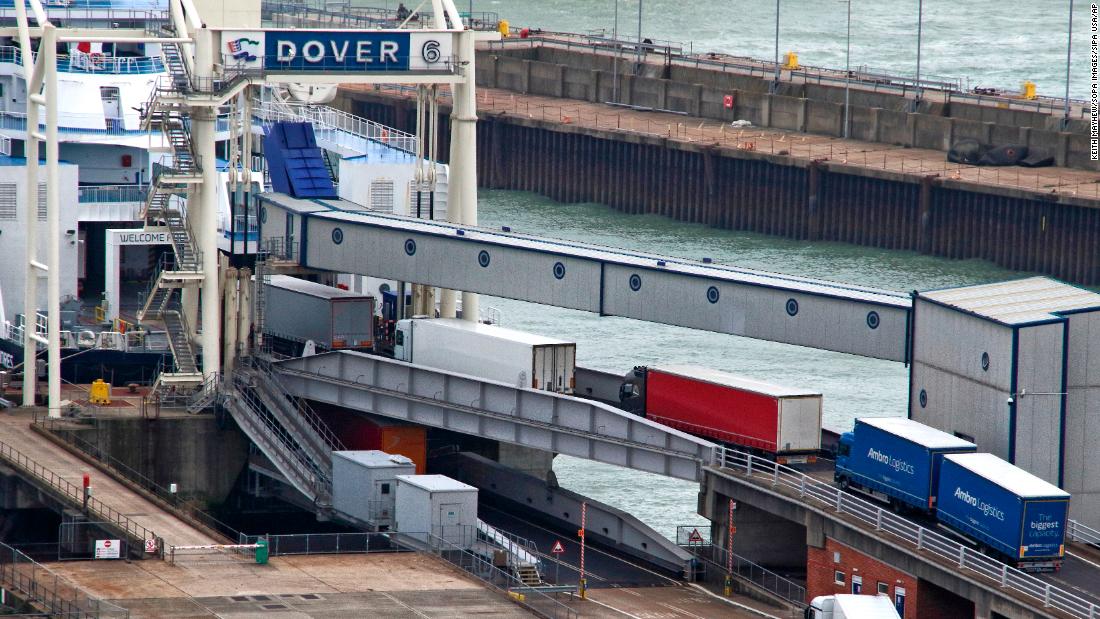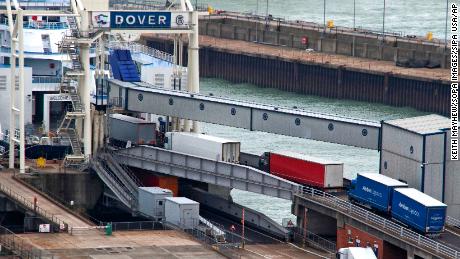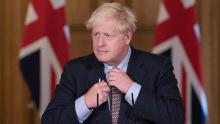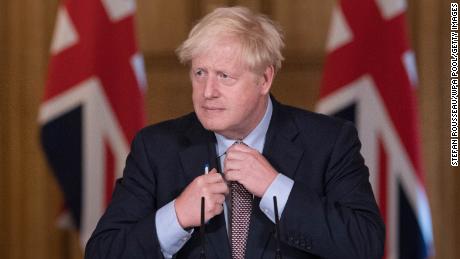Now, after painstaking negotiations that resulted in an amicable divorce with the European Union earlier this year, Prime Minister Boris Johnson has instigated a confrontation with Brussels that could turn the nightmare “no-deal” scenario for business into reality.
What’s more, intentionally breaking international law would make other countries think twice before offering the United Kingdom the free trade deals it desperately needs, damage the country’s reputation as a standard bearer for the rule of law and make it a less attractive destination for startups and foreign investment.
“For a country, without any real thought about where it’s going, to put so much up in the air is hugely unusual and it’s hugely worrying,” said David Henig, the UK director of the European Centre For International Political Economy.
Crashing out
There’s no trading arrangement available to the United Kingdom that can deliver the benefits of continued membership in the European Union, the world’s largest single market area and the destination for 43% of British exports. Leaving the bloc means higher costs for UK companies under any circumstances.
Already, years of uncertainty over the future terms of EU trade have damaged the UK economy. According to analysts at Berenberg, UK GDP grew at a respectable annual rate of 2.4% in the three years leading up to the June 2016 Brexit referendum. That slowed to 1.6% in the years since as business investment stagnated.
The most damaging scenario, under which the United Kingdom does not secure a new trade agreement and the divorce deal is not honored, could snarl supply chains and cause huge disruption at the border, where customs systems would likely be overwhelmed. That could lead to shortages of food and medicine in Britain.
The UK government estimated in November 2018 that a disorderly end to Britain’s trade relationship with the European Union would reduce output by 7.7% over the next 15 years compared to continued EU membership. And the shock to the pandemic-scarred economy would be immediate.
“A hard exit with few or no intermediate steps to manage the adjustment in key areas like goods trade and financial services could tip the UK back into recession in early 2021,” said Berenberg economist Kallum Pickering in a research note this week.
Pound down
Investors have been rattled by recent events. The British pound has dropped 4% against the dollar to $1.28 since the beginning of September. It could plunge another 10% to $1.15 in a “no-deal” scenario, according to analysts at Capital Economics.
Industry groups have warned of dire consequences. The trucking and transportation companies that bring goods into the United Kingdom said this month that they’re in the dark about IT systems that will be used for customs declarations, as well as changes to infrastructure at the border. There’s not enough time left to hire the tens of thousands of customs agents before the end of the year.
The British Retail Consortium said this week that consumers should be prepared for higher prices and reduced availability of products, warning that a disorderly break with Europe would lead to worse disruption than the coronavirus pandemic. Demand for food products from Europe, which would face an average tariff of 22%, is highest in January.
“In a no deal, our key supply routes … will be disrupted at a time we heavily rely on imports,” said Andrew Opie, the group’s director of food policy. “Disruption to the supply chain means a reduction in availability, shorter shelf life and more pressure on prices.”
Henig said it could take several years for the UK economy to adjust to higher tariffs and other barriers to trade with the European Union. He expects the food and drink, automotive and chemicals industries to suffer most. “I don’t see how a car made in the UK is economically viable with a 10% tariff into the EU,”he said. “You could be talking about substantial parts of UK manufacturing ceasing to exist.”
Who wants a trade deal?
A decision by Johnson to override parts of the divorce agreement may help appease some members of his Conservative Party, but it could also undermine Britain’s ability to secure new trade deals in the years to come.
Britain will no longer be covered by trade deals negotiated by the European Union at the end of this year, and the country is trying to replicate as many of those as possible, while also pursuing new agreements with countries that do not have EU deals, such as the United States.
“If the UK violates that international treaty and Brexit undermines the Good Friday accord, there will be absolutely no chance of a US-UK trade agreement passing the Congress,” Pelosi said in a statement on Wednesday.
But there’s still a very long way to go. Assuming the EU-UK talks collapse, only 10% of UK trade is covered by agreements, including the Japan deal. And even if Britain succeeds in signing up more countries to free trade deals, violating international law could unnerve foreign investors who are looking for a predictable business environment.
“If you’re located in a country that has a trade deal with the United Kingdom and you’re thinking about investing in selling into the United Kingdom or in using UK inputs in your production, you will feel slightly less secure about whether the current arrangements that make it profitable will persist,” said Professor L. Alan Winters, a director of the UK Trade Policy Observatory at the University of Sussex.
What happens next has the potential to set the British economy on a path for years to come. There are only weeks remaining in which to reach a new trade deal and avoid new tariffs and other barriers.
“We hope that we’ll eventually recover from Covid-19, but Brexit is permanent,” said Winters.





